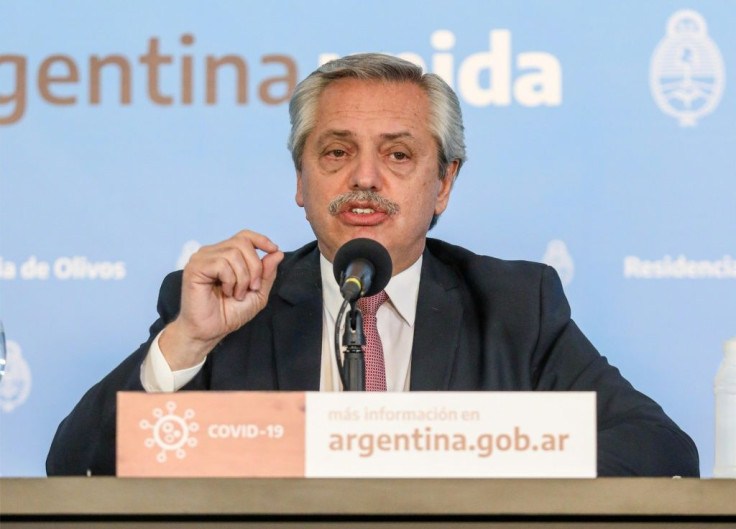Argentina Extends Debt Negotiations To June 19
Argentina on Friday extended a deadline for debt restructuring talks to June 19 as the economy ministry announced it was preparing to present a new offer to creditors.
The announcement, the third extension in months of negotiations to restructure $66 billion in debt, had been expected amid reports that the government and bondholders were still some way apart.
"Argentina and its advisors intend to take advantage of this extension to continue discussions and allow investors to continue contributing to a successful debt restructuring," a statement from the economy ministry said.
Buenos Aires is analyzing suggestions "on the different possible ways to improve collections... and maximize investor support, while preserving its debt sustainability objectives," it said.
Earlier, Mexico's President Manuel Andres Lopez Obrador said he had personally lobbied Larry Fink, chief executive of major Argentina creditor Blackrock, to accept the Argentine offer.
He said he had contacted Fink at the request of Argentine President Alberto Fernandez.
"He knew I had a good relationship with Larry Fink," the Mexican president told his daily press conference.
"Sometimes these things affect the economic and financial stability of the world, of other countries," said the Mexican president, who did not disclose the date of his discussions.
Fernandez on Wednesday said that "obviously Argentina will improve its offer," after being knocked back several times by bondholders.

In April, Argentina asked bondholders for a three-year grace period on debt repayment, a 62 percent reduction on interest amounting to $37.9 billion, and 5.4 percent on capital -- or $3.6 billion.
That was rejected the following month, while Argentina then failed to pay $500 million of interest on its bond debt, thus defaulting.
Last week, the IMF gave its backing to a revised proposal by the Argentine government, but Fernandez insists any deal must be sustainable.
The new offer could include a coupon tied to agricultural exports, the country's main source of income, according to sources close to negotiations, which involve three separate creditor groups.
The export warrants "would be less open to manipulation by governments (present and future) than the traditional GDP warrants, which have been issued in the past," Capital Economics said in a note.
"Cutting through the ebb and flow of the negotiations, though, even if a deal is done in the coming weeks, we are skeptical that it will deliver enough debt relief to prevent another restructuring further down the line."
Previously, Argentina mooted the idea of offering a coupon tied to GDP, but that did not prove attractive.
"There was no appetite among the vast majority of creditors for such an instrument, so it wasn't included in the offer," Economy Minister Martin Guzman said this week.
© Copyright AFP 2024. All rights reserved.




















